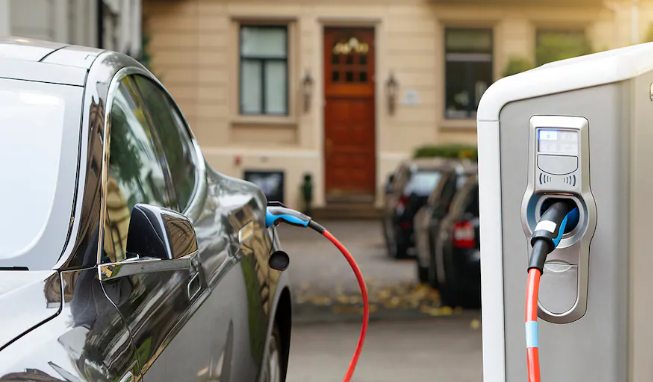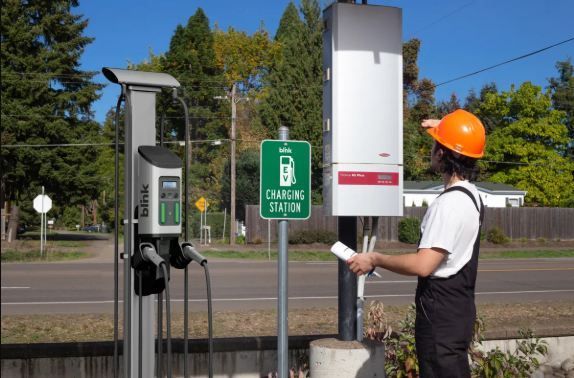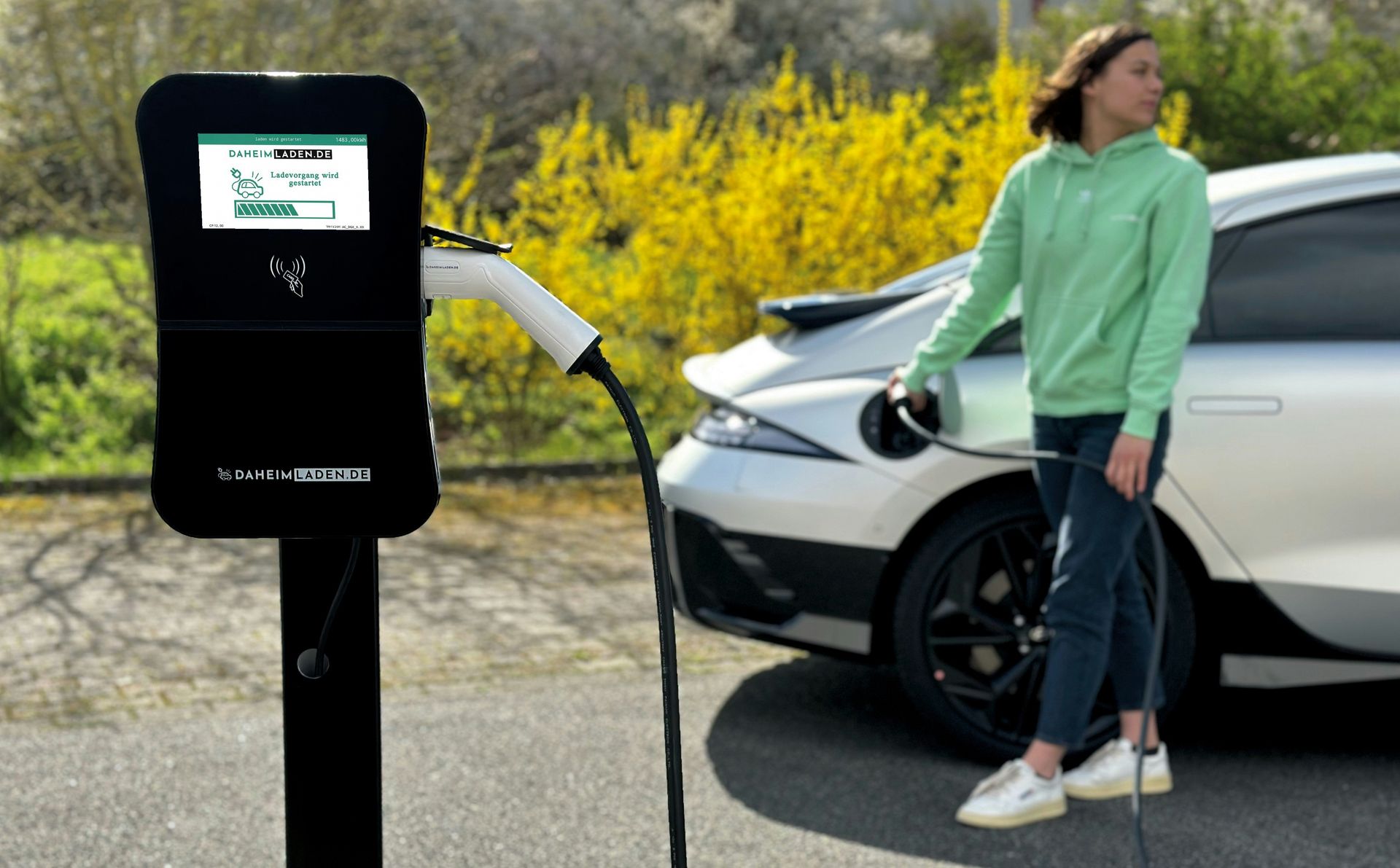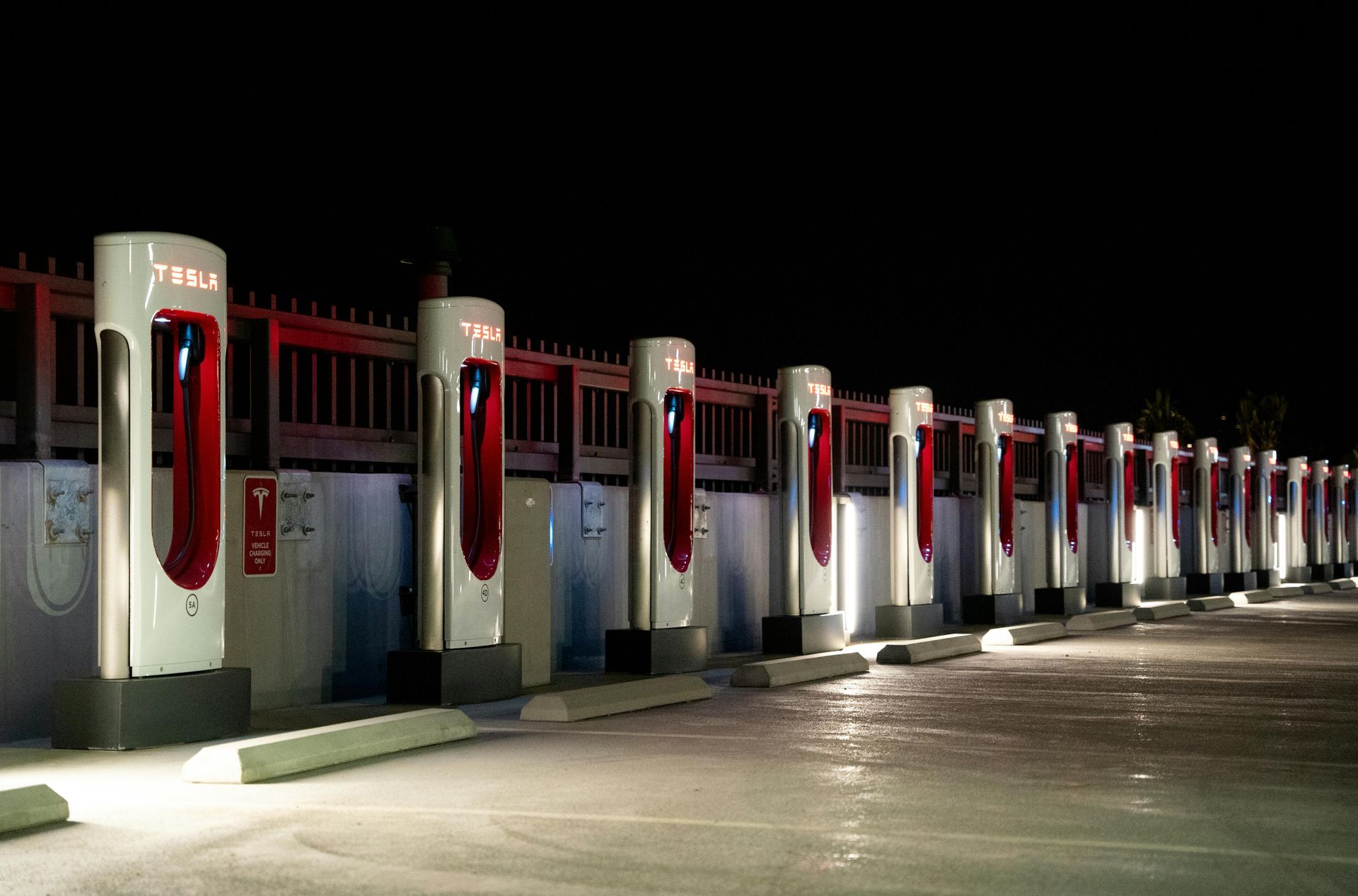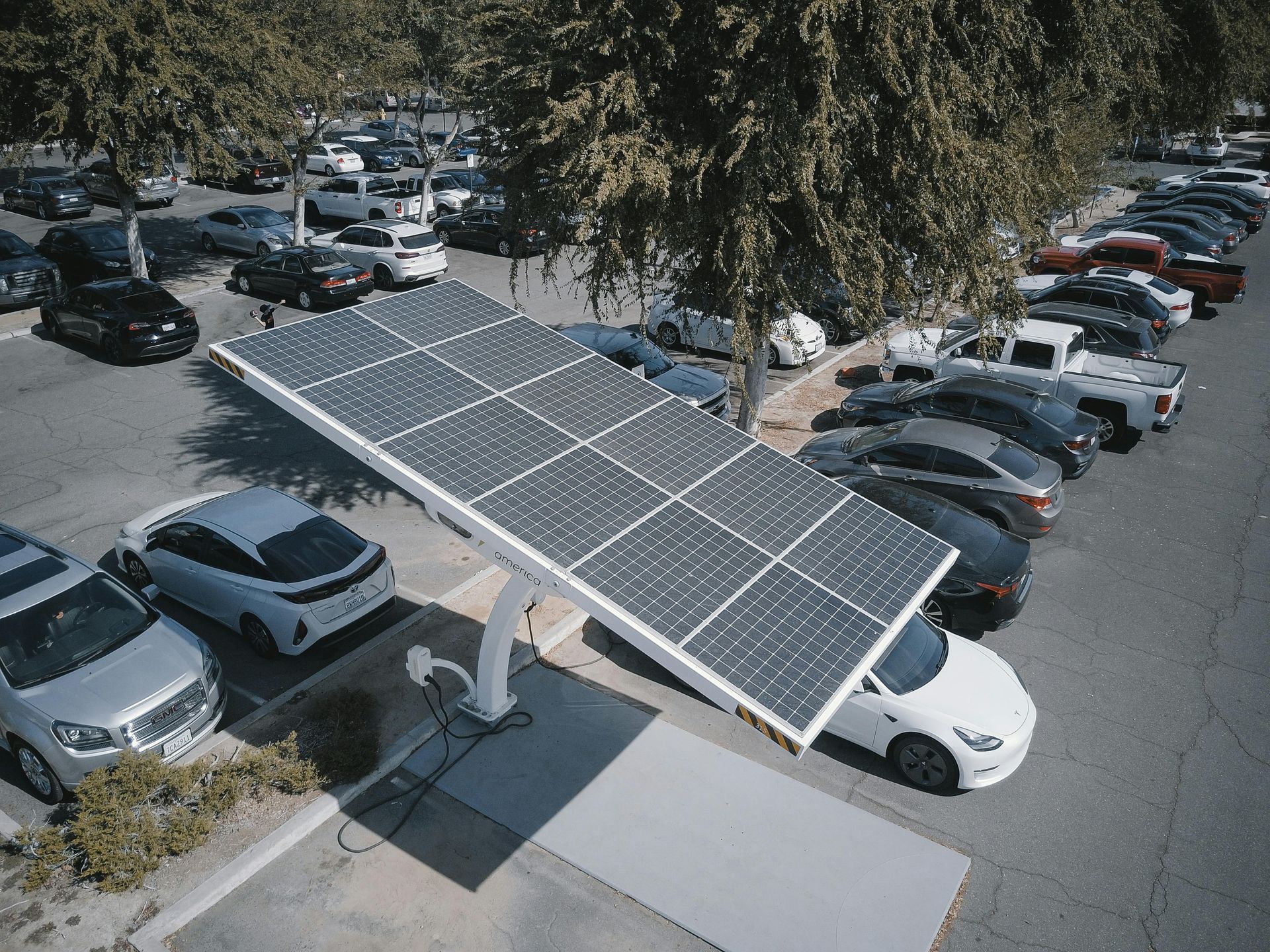The Impact of Electric Vehicles on the Future of Transportation: Transforming How We Move
Explore the impact that EVs are having on the future of transportation
Introduction
The transportation sector stands at the threshold of its most significant transformation since the introduction of the automobile itself. Electric vehicles, once considered niche products for early adopters and environmentalists, have evolved into mainstream transportation options that are reshaping how we think about mobility on both global and local scales.
This shift is particularly visible across the Greater Toronto Area, where EV adoption has accelerated dramatically in recent years. From the growing number of electric vehicles navigating downtown Toronto streets to expanding charging networks across Mississauga, Brampton, and beyond, the transition to electric transportation is becoming increasingly apparent in our daily lives.
The implications of this transition extend far beyond simply replacing one type of vehicle with another. Electric vehicles represent a fundamental reimagining of transportation systems, energy infrastructure, urban planning, and economic models. In this comprehensive examination, we'll explore the multifaceted impact that EVs are having on the future of transportation, from environmental considerations to technological innovation and broader societal changes.
1. Environmental Benefits
Reduction in Greenhouse Gas Emissions
The most immediate environmental impact of electric vehicles comes from the elimination of tailpipe emissions:
- Zero direct emissions: Unlike conventional vehicles that emit carbon dioxide, nitrogen oxides, and particulate matter during operation, battery electric vehicles produce zero direct emissions while driving.
- Life-cycle emission benefits: Even when accounting for manufacturing and electricity generation, research consistently shows that EVs produce significantly lower lifetime emissions than conventional vehicles. A recent study found that in Ontario, with its relatively clean electricity grid, EVs produce approximately 85% fewer lifetime emissions than comparable gasoline vehicles.
Local climate impact: The transportation sector accounts for approximately 35% of greenhouse gas emissions in the Greater Toronto Area. The Ontario Climate Change Action Plan identifies electrification of transportation as a key strategy for meeting provincial emission reduction targets.
Improved Air Quality
Beyond greenhouse gases, the elimination of tailpipe pollution brings substantial public health benefits:
- Reduced urban air pollution: The absence of nitrogen oxides, particulate matter, and other pollutants from electric vehicles contributes to improved air quality, particularly in dense urban areas like downtown Toronto where vehicle concentrations are highest.
- Health implications: Toronto Public Health estimates that traffic-related air pollution contributes to approximately 1,300 premature deaths and 3,550 hospitalizations annually in the city. The transition to electric vehicles directly addresses this public health challenge.
Environmental justice: Areas with the highest traffic density, often lower-income neighborhoods near major highways like the 401, 427, and Gardiner Expressway, stand to benefit most from reduced vehicle emissions as EV adoption increases.
Noise Pollution Reduction
A less discussed but significant environmental benefit of electric vehicles is their contribution to quieter urban environments:
- Lower operational noise: Electric motors generate substantially less noise than internal combustion engines, particularly at lower speeds where tire and wind noise are minimal.
- Urban soundscape improvements: As EV adoption increases, urban areas experience noticeable reductions in ambient noise levels, contributing to more livable city environments across the GTA.
Health benefits: Reduced noise pollution has been linked to decreased stress levels, improved sleep quality, and better overall mental health among urban residents.
2. Innovations in Transportation
Beyond the Electric Motor: Comprehensive Technological Advancement
The shift to electric propulsion has catalyzed innovation across multiple automotive systems:
- Battery technology evolution: Energy density in EV batteries has improved by approximately 5-8% annually while costs have declined by roughly 85% over the past decade. These trends have made EVs increasingly competitive with conventional vehicles.
- Advanced materials: The pursuit of efficiency has accelerated the adoption of lightweight materials, including advanced high-strength steels, aluminum alloys, and carbon fiber composites throughout vehicle structures.
- Thermal management systems: Electric vehicles have pioneered sophisticated thermal management systems that maximize battery performance and longevity across the wide temperature range experienced in Canadian climates.
These technological advancements extend beyond the vehicles themselves to create a more integrated and efficient transportation ecosystem.
Vehicle Connectivity and Automation
Electric vehicles typically feature higher levels of connectivity and automation than conventional counterparts:
- Advanced driver assistance systems: Features like adaptive cruise control, lane-keeping assistance, and automated parking are more common in electric vehicles, which generally incorporate more advanced electronic architectures.
- Over-the-air updates: Many EVs receive regular software updates that improve functionality and performance without requiring dealer visits, pioneering a new model of continuous improvement throughout vehicle lifespans.
Vehicle-to-everything (V2X) communication: Emerging capabilities allow EVs to communicate with infrastructure, other vehicles, and the electrical grid, creating foundations for more intelligent transportation systems across Ontario's highways and urban centers.
New Mobility Models
Electric vehicles are facilitating the emergence of new approaches to personal mobility:
- Car sharing and fleet applications: The lower operating costs of EVs make them particularly suitable for high-utilization scenarios like car sharing services, which are growing across the GTA.
- Mobility as a service: Integrated mobility platforms increasingly incorporate electric options, from e-bikes to full-sized vehicles, creating more flexible and sustainable transportation networks.
Last-mile solutions: Electric micromobility options like e-scooters (currently in pilot programs in some Ontario municipalities) complement larger EVs to create comprehensive sustainable mobility systems.
3. Changes in Infrastructure Needs
The Evolving Charging Ecosystem
Perhaps the most visible infrastructure change is the deployment of charging networks across urban and interurban landscapes:
- Diverse charging approaches: From residential installations to workplace charging, public access points, and highway fast-charging corridors, a layered charging infrastructure is developing across Ontario.
- Toronto-specific developments: The City of Toronto's EV Strategy aims to ensure that every resident is within a reasonable distance of public charging. Currently, the city has over 600 public charging points, with plans for significant expansion.
- Intelligent charging management: Smart charging systems are increasingly managing load distribution, enabling vehicle-grid integration, and optimizing charging times to minimize costs and environmental impact.
The charging infrastructure required for widespread EV adoption represents both a challenge and an opportunity for urban and regional planning.
Urban Planning and Real Estate Implications
Electric vehicle adoption is influencing how communities are designed and buildings are constructed:
- Building code evolution: Many municipalities across the GTA are updating building codes to require "EV-ready" electrical infrastructure in new construction, ensuring future charging capability without costly retrofits.
- Parking facility redesign: Commercial properties are reconfiguring parking facilities to accommodate charging stations, often placing them in premium locations to attract EV-driving customers.
Multi-unit dwelling solutions: Innovative approaches to providing charging access in condominiums and apartments are emerging, addressing one of the significant barriers to EV adoption in the Toronto housing market, where approximately 70% of residents live in multi-unit dwellings.
Grid Integration and Energy Systems
The integration of transportation and energy systems creates both challenges and opportunities:
- Distribution system upgrades: Local utilities across the GTA are strategically upgrading distribution infrastructure to support increased electricity demand from EV charging.
- Demand response potential: Smart charging technologies allow EVs to serve as flexible loads that can help manage electricity demand peaks, potentially reducing system costs and supporting renewable energy integration.
Vehicle-to-grid capability: Emerging bidirectional charging technologies enable EVs to provide power back to homes or the grid during outages or periods of high electricity demand, enhancing energy resilience.
4. Economic Implications
Job Creation and Workforce Transformation
The transition to electric vehicles is creating new employment opportunities while requiring workforce adaptation:
- Manufacturing evolution: Ontario's automotive manufacturing sector, which employs approximately 100,000 people, is pivoting toward EV production. Recent announcements of EV-focused investments by major manufacturers represent billions of dollars in economic activity.
- Installation and maintenance jobs: The deployment of charging infrastructure has created demand for skilled electrical workers. Our own company has expanded its installation team by 40% in the past year to meet growing demand across the GTA.
New skill requirements: Educational institutions across Ontario, including Centennial College and Humber College in Toronto, have developed specialized programs to prepare workers for roles in EV manufacturing, maintenance, and infrastructure deployment.
Total Cost of Ownership Advantages
The economic benefits of EVs extend to operators and owners:
- Operating cost savings: Electric vehicles typically cost 60-80% less to operate per kilometer than conventional vehicles, based on Ontario electricity rates versus gasoline prices.
- Maintenance reduction: With fewer moving parts and no oil changes, EVs require approximately 40% less maintenance over their lifetime, translating to thousands of dollars in savings.
Fleet economics: Commercial fleets operating in the GTA are increasingly adopting EVs based on favorable total cost of ownership calculations, particularly for vehicles with high daily utilization.
New Business Models and Economic Opportunities
The EV ecosystem is creating entirely new business models:
- Charging network operations: Companies specializing in charging infrastructure deployment and management represent a growing sector within the broader transportation economy.
- Battery lifecycle management: From manufacturing to second-life applications and recycling, the battery supply chain represents significant economic opportunity.
Energy services: Businesses focused on managed charging, vehicle-grid integration, and renewable energy pairing are emerging as important elements of the electrified transportation landscape.
5. The Role of Government Policies
Federal Initiatives Driving Adoption
National policies are accelerating the transition to electric transportation:
- ZEV mandate: Canada's Zero Emission Vehicle mandate requires that 20% of new light-duty vehicle sales be zero-emission by 2026, rising to 60% by 2030 and 100% by 2035.
- Purchase incentives: The federal iZEV program provides rebates of up to $5,000 for eligible electric vehicles, reducing the upfront cost barrier.
- Infrastructure funding: Federal programs have provided significant funding for public charging infrastructure deployment across Canada, including major corridors connecting GTA communities.
Provincial and Local Policy Landscape
Regional and municipal policies complement federal initiatives:
- Ontario's energy planning: Despite changes in provincial EV incentives in recent years, Ontario's energy planning continues to incorporate transportation electrification as a significant factor in future electricity demand.
- Municipal leadership: The City of Toronto's Electric Mobility Strategy sets ambitious targets for EV adoption and charging infrastructure deployment, including converting the municipal fleet to electric vehicles.
Regional coordination: The GTHA Regional Transportation Plan incorporates electric mobility as a key component of sustainable transportation planning across the interconnected municipalities of the Greater Toronto and Hamilton Area.
International Context and Trade Implications
Canadian policies exist within a global context of transportation electrification:
- Trade considerations: As major trading partners including the United States and European Union accelerate their transitions to electric transportation, Canada's automotive sector must electrify to maintain export markets.
- Supply chain development: Government policies increasingly focus on developing domestic EV supply chains, from critical minerals mining in Northern Ontario to battery manufacturing and vehicle assembly.
Standards harmonization: Technical standards for charging infrastructure and vehicle specifications are increasingly aligned internationally, facilitating global market development.
Conclusion
The electrification of transportation represents more than a simple change in propulsion technology—it constitutes a fundamental reimagining of how we move people and goods. From environmental benefits and technological innovation to infrastructure development, economic transformation, and policy evolution, electric vehicles are catalyzing change across multiple dimensions of our transportation systems.
For residents of the Greater Toronto Area, this transformation is increasingly visible in our daily lives. The growing presence of electric vehicles on our roads, expanding charging networks in our communities, and emerging economic opportunities in the EV ecosystem all signal that the future of transportation has begun to arrive.
This transition brings both challenges and opportunities. The required infrastructure investments, workforce development needs, and policy frameworks to support widespread EV adoption are substantial. However, the potential benefits—cleaner air, reduced carbon emissions, technological innovation, and economic growth—provide compelling motivation to address these challenges proactively.
As we continue this journey toward electrified transportation, remaining informed about evolving technologies, infrastructure developments, and policy frameworks will be essential for individuals, businesses, and communities seeking to navigate and benefit from this significant transition.
Stay Informed with Our Updates!
At MyEVExperts, we're committed to helping our customers and communities navigate the transition to electric transportation. From regular updates on charging technology and infrastructure developments to insights on government policies and incentives, we provide the information you need to make informed decisions about electric mobility.
Subscribe to our newsletter or follow us on social media to stay current on the latest developments in the rapidly evolving electric vehicle landscape. Whether you're already an EV owner or considering making the switch in the future, we're here to keep you informed every step of the way!


